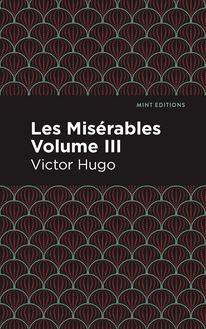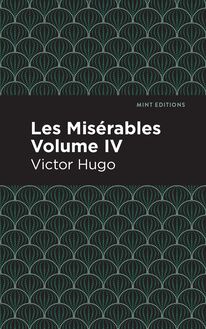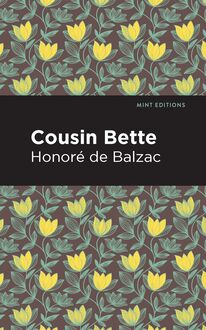-
 Univers
Univers
-
 Ebooks
Ebooks
-
 Livres audio
Livres audio
-
 Presse
Presse
-
 Podcasts
Podcasts
-
 BD
BD
-
 Documents
Documents
-
- Cours
- Révisions
- Ressources pédagogiques
- Sciences de l’éducation
- Manuels scolaires
- Langues
- Travaux de classe
- Annales de BEP
- Etudes supérieures
- Maternelle et primaire
- Fiches de lecture
- Orientation scolaire
- Méthodologie
- Corrigés de devoir
- Annales d’examens et concours
- Annales du bac
- Annales du brevet
- Rapports de stage
La lecture à portée de main
Vous pourrez modifier la taille du texte de cet ouvrage
Découvre YouScribe en t'inscrivant gratuitement
Je m'inscrisDécouvre YouScribe en t'inscrivant gratuitement
Je m'inscrisEn savoir plus
Vous pourrez modifier la taille du texte de cet ouvrage
En savoir plus

Description
The Fifth Queen Crowned (1908) is a novel by Ford Madox Ford. The third and final installment of Ford’s The Fifth Queen Trilogy is set during the reign of Henry VIII, a tumultuous time of political and religious oppression in a land at the mercy of a murderous King. Ford’s trilogy recreates Tudor England in a masterful story of court intrigue, romance, and betrayal. Focusing on the tragic figure of Katharine Howard, the fifth wife of the King, Ford investigates the interconnection of sex and power in a political atmosphere clouded by violence and espionage. Depicting some of the era’s most notorious figures, including Thomas Cromwell, Bloody Mary, and the King himself, Ford makes history both entertaining and undeniably human. Brought to the court of King Henry VIII by her cousin Thomas Culpeper, Katharine Howard, a noblewoman whose family’s fortunes had been in decline for some time, inadvertently catches the eye of his majesty. Given a position as a lady in waiting for Lady Mary, Howard—though opposed by the brutally efficient schemer Thomas Cromwell—soon distinguishes herself in the eyes of the King, who makes her his fifth Queen. Thrust into the spotlight at the age of seventeen, she finds herself forced into an impossible role as a public figure whose every move could enrage her notoriously violent husband. Howard has traditionally been seen as a minor figure in the history of Tudor England. For Ford, however, a master storyteller with an eye for tragedy and a skill for developing flawed, convincingly human characters, Howard is a woman whose life and death are not only worthy of literature, but instructive for the men and women of Edwardian England. In The Fifth Queen Crowned, he continues the story of Katharine in the aftermath of Thomas Cromwell’s demise. Now married to Henry VIII, she finds herself increasingly powerless at court and fears angering the King. Strong willed and eminently good, Katharine is drawn into the controversy surrounding Nicholas Throckmorton, who has been implicated in Wyatt’s Rebellion and thrown in prison. As the King grows tired of her willpower and jealous of her relationship with Culpeper, her time as Queen grows increasingly tenuous. With a beautifully designed cover and professionally typeset manuscript, this edition of Ford Madox Ford’s The Fifth Queen Crowned is a classic work of British literature reimagined for modern readers.
Sujets
Informations
| Publié par | Mint Editions |
| Date de parution | 08 juin 2021 |
| Nombre de lectures | 0 |
| EAN13 | 9781513293660 |
| Langue | English |
| Poids de l'ouvrage | 2 Mo |
Informations légales : prix de location à la page 0,0500€. Cette information est donnée uniquement à titre indicatif conformément à la législation en vigueur.
Extrait
The Fifth Queen Crowned
Ford Madox Ford
The Fifth Queen Crowned was first published in 1908.
This edition published by Mint Editions 2021.
ISBN 9781513290812 | E-ISBN 9781513293660
Published by Mint Editions ®
minteditionbooks.com
Publishing Director: Jennifer Newens
Design & Production: Rachel Lopez Metzger
Project Manager: Micaela Clark
Typesetting: Westchester Publishing Services
C ONTENTS P ART I. T HE M AJOR C ORD I II III IV V VI VII VIII P ART II. T HE T HREATENED R IFT I II III IV V P ART III. T HE D WINDLING M ELODY I II III P ART IV. T HE E ND OF THE S ONG I II III IV V
PART I
THE MAJOR CHORD
I
“The Bishop of Rome—”
Thomas Cranmer began a hesitating speech. In the pause after the words the King himself hesitated, as if he poised between a heavy rage and a sardonic humour. He deemed, however, that the humour could the more terrify the Archbishop—and, indeed, he was so much upon the joyous side in those summer days that he had forgotten how to browbeat.
“Our holy father,” he corrected the Archbishop. “Or I will say my holy father, since thou art a heretic—”
Cranmer’s eyes had always the expression of a man’s who looked at approaching calamity, but at the King’s words his whole face, his closed lips, his brows, the lines from his round nose, all drooped suddenly downwards.
“Your Grace will have me write a letter to the—to his—to him—”
The downward lines fixed themselves, and from amongst them the panic-stricken eyes made a dumb appeal to the griffins and crowns of his dark green hangings, for they were afraid to turn to the King. Henry retained his heavy look of jocularity: he jumped at a weighty gibe—
“My Grace will have thy Grace write a letter to his Holiness.”
He dropped into a heavy impassivity, rolled his eyes, fluttered his swollen fingers on the red and gilded table, and then said clearly, “My. Thy. His.”
When he was in that mood he spoke with a singular distinctness that came up from his husky and ordinary joviality like something dire and terrible—like that something that upon a clear smooth day will suggest to you suddenly the cruelty that lies always hidden in the limpid sea.
“To C æ sar—egomet, I mineself—that which is C æ sar’s: to him—that is to say to his Holiness, our lord of Rome—the things which are of God! But to thee, Archbishop, I know not what belongs.”
He paused and then struck his hand upon the table: “Cold porridge is thy portion! Cold porridge!” he laughed; “for they say: Cold porridge to the devil! And, since thou art neither God’s nor the King’s, what may I call thee but the devil’s self’s man?”
A heavy and minatory silence seemed to descend upon him; the Archbishop’s thin hands opened suddenly as if he were letting something fall to the ground. The King scowled heavily, but rather as if he were remembering past heavinesses than for any present griefs.
“Why,” he said, “I am growing an old man. It is time I redded up my house.”
It was as if he thought he could take his time, for his heavily pursed eyes looked down at the square tips of his fingers where they drummed on the table. He was such a weighty man that the old chair in which he sat creaked at the movement of his limbs. It was his affectation of courtesy that he would not sit in the Archbishop’s own new gilded and great chair that had been brought from Lambeth on a mule’s back along with the hangings. But the other furnishings of that Castle of Pontefract were as old as the days of Edward IV—even the scarlet wood of the table had upon it the arms of Edward IV’s Queen Elizabeth, side by side with that King’s. Henry noted it and said—
“It is time these arms were changed. See that you have here fairly painted the arms of my Queen and me—Howard and Tudor—in token that we have passed this way and sojourned in this Castle of Pontefract.”
He was dallying with time as if it were a luxury to dally: he looked curiously round the room.
“Why, they have not housed you very well,” he said, and, as the Archbishop shivered suddenly, he added, “there should be glass in the windows. This is a foul old kennel.”
“I have made a complaint to the Earl Marshal,” Cranmer said dismally, “but ’a said there was overmuch room needed above ground.”
This room was indeed below ground and very old, strong, and damp. The Archbishop’s own hangings covered the walls, but the windows shot upwards through the stones to the light; there was upon the ground of stone not a carpet but only rushes; being early in the year, no provision was made for firing, and the soot of the chimney back was damp, and sparkled with the track of a snail that had lived there undisturbed for many years, and neither increasing, because it had no mate, nor dying, because it was well fed by the ferns that, behind the present hangings, grew in the joints of the stones. In that low-ceiled and dark place the Archbishop was aware that above his head were fair and sunlit rooms, newly painted and hung, with the bosses on the ceilings fresh silvered or gilt, all these fair places having been given over to kinsmen of the yellow Earl Marshal from the Norfolk Queen downwards. And the temporal and material neglect angered him and filled him with a querulous bitterness that gnawed up even through his dread of a future—still shadowy—fall and ruin.
The King looked sardonically at the line of the ceiling. He had known that Norfolk, who was the Earl Marshal, had the mean mind to make him set these indignities upon the Archbishop, and loftily he considered this result as if the Archbishop were a cat mauled by his own dog whose nature it was to maul cats.
The Archbishop had been standing with one hand on the arm of his heavy chair, about to haul it back from the table to sit himself down. He had been standing thus when the King had entered with the brusque words—
“Make you ready to write a letter to Rome.”
And he still stood there, the cold feet among the damp rushes, the cold hand still upon the arm of the chair, the cap pulled forward over his eyes, the long black gown hanging motionless to the boot tops that were furred around the ankles.
“I have made a plaint to the Earl Marshal,” he said; “it is not fitting that a lord of the Church should be so housed.”
Henry eyed him sardonically.
“Sir,” he said, “I am being brought round to think that ye are only a false lord of the Church. And I am minded to think that ye are being brought round to trow even the like to mine own self.”
His eyes rested, little and twinkling like a pig’s, upon the opening of the Archbishop’s cloak above his breastbone, and the Archbishop’s right hand nervously sought that spot.
“I was always of the thought,” he said, “that the prohibition of the wearing of crucifixes was against your Highness’ will and the teachings of the Church.”
A great crucifix of silver, the Man of Sorrows depending dolorously from its arms and backed up by a plaque of silver so that it resembled a porter’s badge, depended over the black buttons of his undercoat. He had put it on upon the day when secretly he had married Henry to the papist Lady Katharine Howard. On the same day he had put on a hair shirt, and he had never since removed either the one or the other. He had known very well that this news would reach the Queen’s ears, as also that he had fasted thrice weekly and had taken a Benedictine sub-prior out of chains in the tower to be his second chaplain.
“Holy Church! Holy Church!” the King muttered amusedly into the stiff hair of his chin and lips. The Archbishop was driven into one of his fits of panic-stricken boldness.
“Your Grace,” he said, “if ye write a letter to Rome you will—for I see not how ye may avoid it—reverse all your acts of this last twenty years.”
“Your Grace,” the King mocked him, “by your setting on of chains, crucifixes, phylacteries, and by your aping of monkish ways, ye have reversed—well ye know it—all my and thy acts of a long time gone.”
He cast himself back from the table into the leathern shoulder-straps of the chair.
“And if,” he continued with sardonic good-humour, “my fellow and servant may reverse my acts—videlicet, the King’s—wherefore shall not I—videlicet, the King—reverse what acts I will? It is to set me below my servants!”
“I am minded to redd up my house!” he repeated after a moment.
“Please it, your Grace—” the Archbishop muttered. His eyes were upon the door.
The King said, “Anan?” He could not turn his bulky head, he would not move his bulky body.
“My gentleman!” the Archbishop whispered.
The King looked at the opposite wall and cried out—
“Come in, Lascelles. I am about cleaning out some stables of mine.”
The door moved noiselessly and heavily back, taking the hangings with it; as if with the furtive eyes and feathery grace of a blonde fox Cranmer’s spy came round the great boards.
“Ay! I am doing some cleansing,” the King said again. “Come hither and mend thy pen to write.”
Against the King’s huge bulk—Henry was wearing purple and black upon that day—and against the Archbishop’s black and pillar-like form, Lascelles, in his scarlet, with his blonde and tender beard had an air of being quill-like. The bones of his knees through his tight and thin silken stockings showed almost as those of a skeleton; where the King had great chains of gilt and green jewels round his neck, and where the Archbishop had a heavy chain of silver, he had a thin chain of fine gold and a tiny badge of silver-gilt. He dragged one of his legs a little when he walked. That was the fashion of that day, because the King himself dragged his right leg, though the ulcer in it had been cured.
Sitting askew in his chair at the table, the King did not look at this gentleman, but moved the fingers of his outstretched hand in token that his crook of the leg was kneeling enough for him.
“Take your tablets and write,” Henry said; “nay, take a great sheet of parchment and write—”
“Your Grace,” he added to the Archbishop, “ye are the greatest penner of sol
-
 Univers
Univers
-
 Ebooks
Ebooks
-
 Livres audio
Livres audio
-
 Presse
Presse
-
 Podcasts
Podcasts
-
 BD
BD
-
 Documents
Documents
-
Jeunesse
-
Littérature
-
Ressources professionnelles
-
Santé et bien-être
-
Savoirs
-
Education
-
Loisirs et hobbies
-
Art, musique et cinéma
-
Actualité et débat de société
-
Jeunesse
-
Littérature
-
Ressources professionnelles
-
Santé et bien-être
-
Savoirs
-
Education
-
Loisirs et hobbies
-
Art, musique et cinéma
-
Actualité et débat de société
-
Actualités
-
Lifestyle
-
Presse jeunesse
-
Presse professionnelle
-
Pratique
-
Presse sportive
-
Presse internationale
-
Culture & Médias
-
Action et Aventures
-
Science-fiction et Fantasy
-
Société
-
Jeunesse
-
Littérature
-
Ressources professionnelles
-
Santé et bien-être
-
Savoirs
-
Education
-
Loisirs et hobbies
-
Art, musique et cinéma
-
Actualité et débat de société
- Cours
- Révisions
- Ressources pédagogiques
- Sciences de l’éducation
- Manuels scolaires
- Langues
- Travaux de classe
- Annales de BEP
- Etudes supérieures
- Maternelle et primaire
- Fiches de lecture
- Orientation scolaire
- Méthodologie
- Corrigés de devoir
- Annales d’examens et concours
- Annales du bac
- Annales du brevet
- Rapports de stage




















